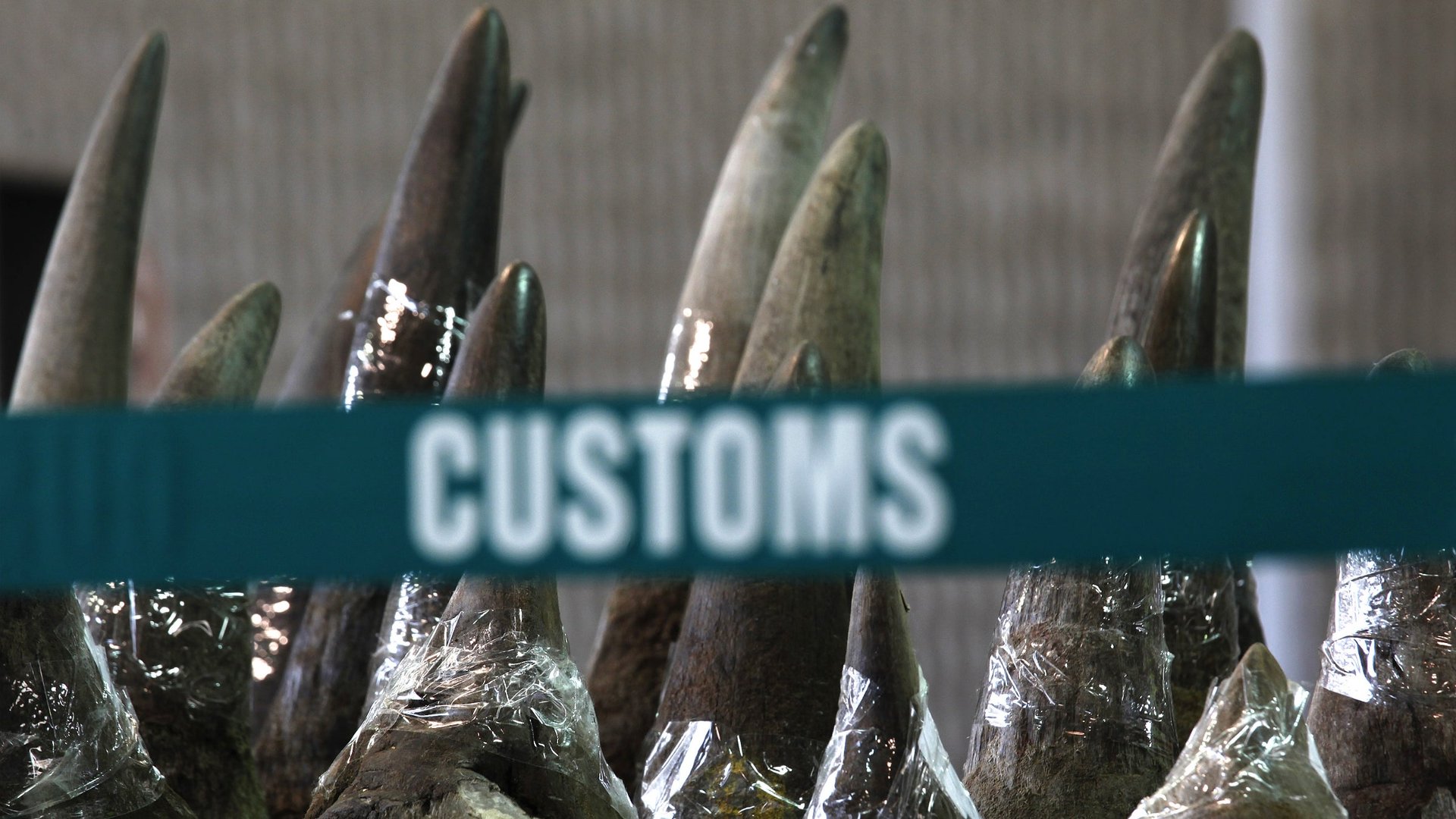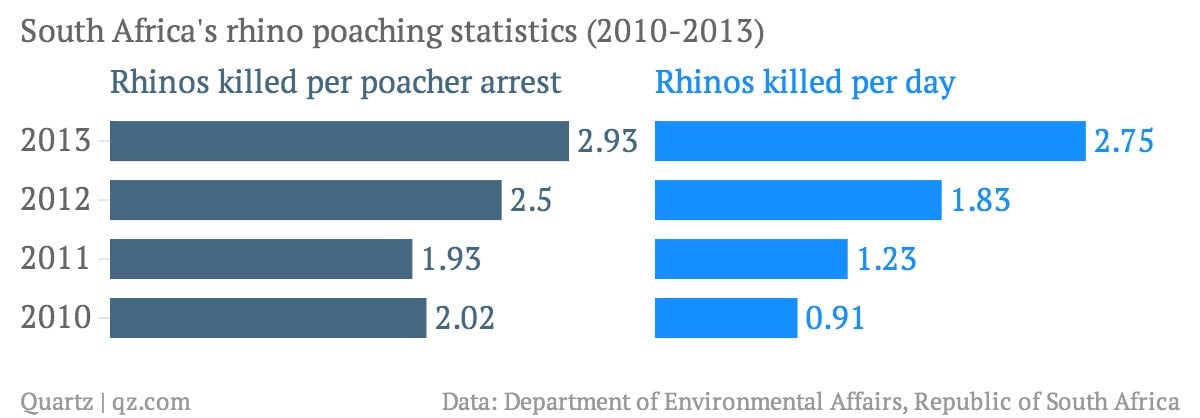In 2013, poachers slaughtered more rhinos than ever in recorded history
For South Africa’s dwindling white rhinoceros population, last year was the deadliest on record. Poachers killed 1,004 rhinos illegally in 2013, more than 1.5 times the number butchered in 2012.


For South Africa’s dwindling white rhinoceros population, last year was the deadliest on record. Poachers killed 1,004 rhinos illegally in 2013, more than 1.5 times the number butchered in 2012.

As we’ve covered before, the killing spree is linked to booming demand in Vietnam and China for rhino horns, which, in pulverized form, are prized both as a luxury club drug and a cancer cure. Rhino horns now sell for as much as $500,000 per pound ($1.1 million per kilogram) in Asia, buoyed by spending driven by surging disposable incomes.
South Africa’s 18,000 or so rhinos make up 83% of the world’s total rhino population, and around three-quarters of wild rhinos, according to Traffic, a non-governmental organization. The alarming increase in poaching over the past few years puts the animals on track for extinction by 2032, researchers warn.

South Africa has been cracking down harder on poachers this year. But part of the problem is Mozambique. Ironically, in 2002, Mozambique and South Africa removed most of a border fence in order to promote a “trans-frontier park” aimed at coordinating their conservation efforts. But this also makes it easy for Mozambican poachers to descended on South Africa’s Kruger National Park, now that they’ve wiped out their local rhino population. Mozambique is the major transit point for rhino horn smuggling, says Tom Milliken, a rhino expert at Traffic.
Mozambique’s former president, Joaquim Chissano, blames this sad state of affairs on his country’s penury. “Extreme poverty encourages poaching,” he said in November, announcing the launch of a foundation to give would-be poachers an alternative income via conservation-focused commercial projects.
Until the demand for rhino horns eases, however, it will be hard to alter the low risk-high reward incentives for poachers. So great is demand from Vietnam and China that a global smuggling ring linked to organized crime groups has built up around the trade. (For instance, check out the recent bust in the Czech Republic.) In the US, for example, although black rhino horns can sell for $50,000 per pound—much higher than the street value for cocaine—horn traffickers face only 14 months in prison if apprehended, compared with up to 40 years for smuggling drugs.